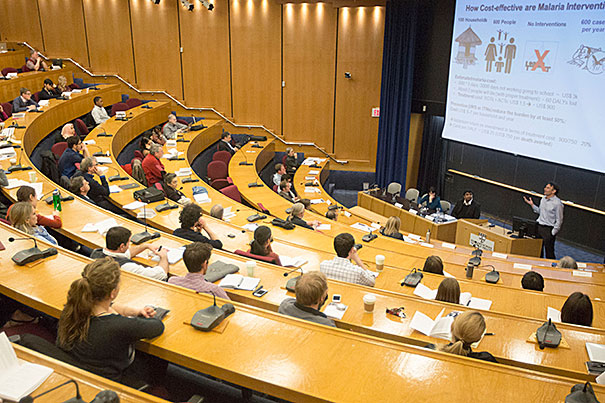Health
-

6 keys to a long, healthy life (ice cream included)
Also, why reading Ben Franklin beats climbing Mount Everest
-

Six cancers rising faster in younger adults than older ones
Large new global study fuels growing concern over trend of increases in several types

-

What’s next for GLP-1s?
Scientists eye new treatment targets for popular weight-loss drugs, from heart failure to addiction
-

Pricey blockbuster GLP-1s are costing users — and most of the rest of us, too
Health insurers are passing along cost for coverage in form of higher rates across the board, policy researcher says
-

Drinking 2-3 cups of coffee a day tied to lower dementia risk
Caffeinated tea also found to slow cognitive decline in study

-

New AI tool predicts brain age, dementia risk, cancer survival
Unlike other AI models, BrainIAC needs limited data to ID key neurological health indicators

-
Target: New ways to battle disease
“The Road to Vital Therapy,” part of the Broad’s Institute’s midsummer science lecture series, discussed how researchers are tapping the human genome, hoping to create effective treatments for vexing afflictions.
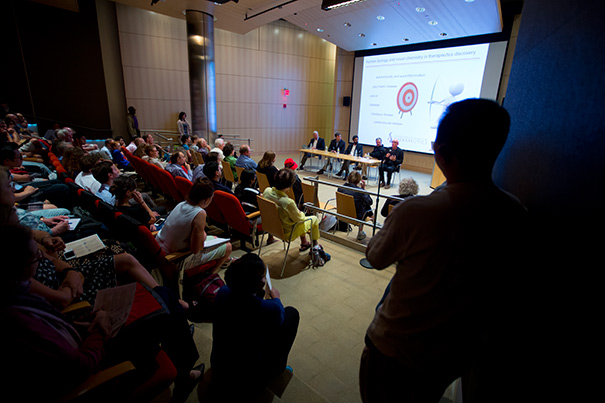
-
A learning gap is filled with plants
With classes in plant morphology fading in universities across the country, an Arnold Arboretum short course is seeking to plug the hole, bringing in top botany graduate students and postdoctoral fellows for an intensive, two-week course.
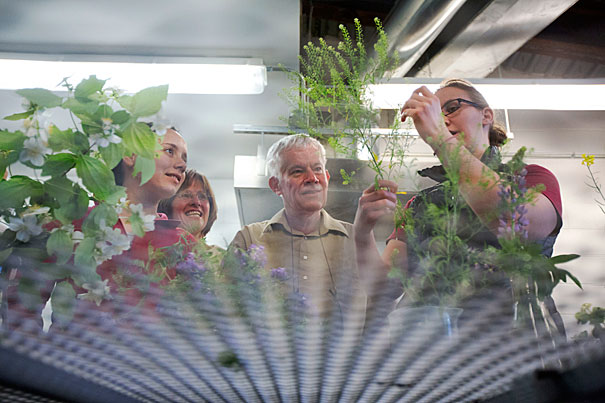
-
Following the swarm
Australian scientist Stephen Simpson’s locust research has led to insights on human nutrition.

-
Developing cancer drugs
Harvard Stem Cell Institute researchers have identified in the most aggressive forms of cancer a gene known to regulate embryonic stem cell self-renewal, beginning a creative search for a drug that can block its activity.
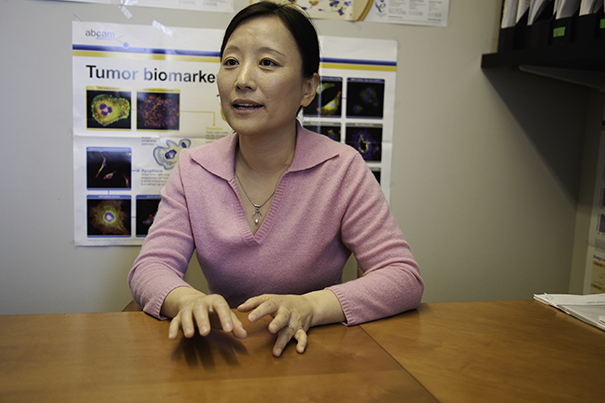
-
Healthy menus for people and planet
Harvard nutrition experts and leaders of the food industry met this week at the Charles Hotel in Cambridge to discuss recommendations for changing menus of everything from restaurants to cafeterias to prepared foods in an effort to improve the American diet and lessen the environmental impact of the foods we eat.
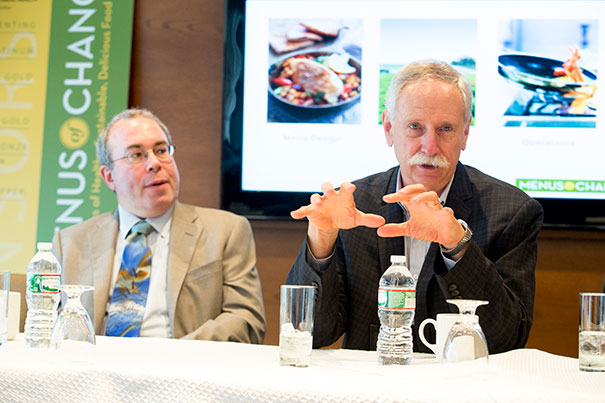
-
Multitasking against obesity
Specialists examines the country’s obesity problem from several angles at an HMS-MGH forum.

-
Learning through doing
As part of Professor Gonzalo Giribet’s Biology of Invertebrates class, students make closely observed, highly detailed sketches of animals they study in the lab.
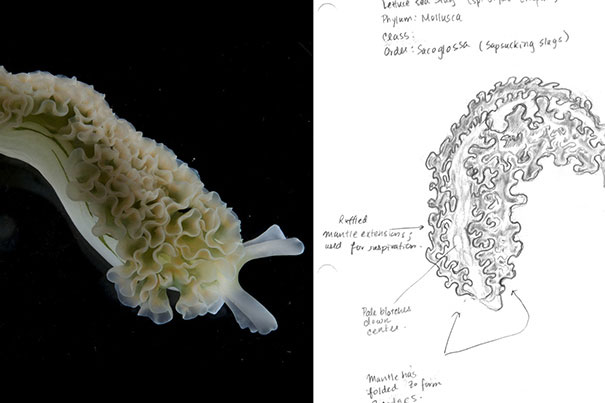
-
Ministering to health
Ministers of health from around the world came to the Harvard Kennedy School this week as part of a leadership workshop, co-sponsored with the School of Public Health, to improve health leadership globally.

-
Mouthful of clues
Harvard researchers have demonstrated that the levels of barium in teeth correspond with breast-feeding. Importantly, they said, the barium levels can remain in fossils that are thousands of years old. This provides new opportunities to study breast-feeding behavior among Neanderthals and early humans.

-
Large-scale ethics
Dan W. Brock of Harvard Medical School on Wednesday delivered the 63rd George W. Gay Lecture in Medical Ethics at the School, focusing on population bioethics.
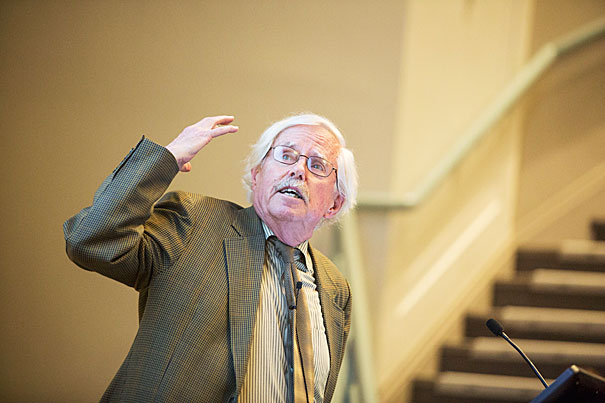
-
Attention, undivided
Jay Winsten of the Harvard School of Public Health hopes to recruit entertainers for a campaign to reduce distracted driving.
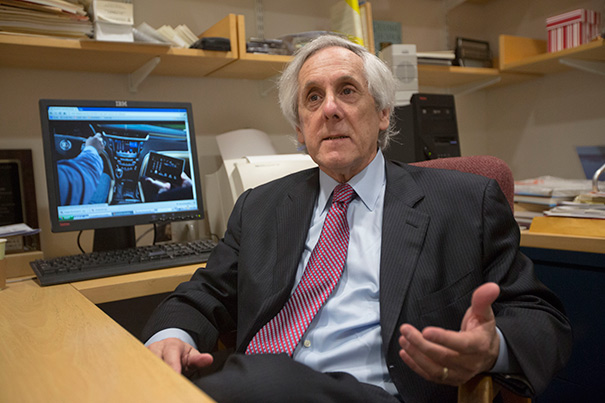
-
Using clay to grow bone
Researchers from Harvard-affiliated Brigham and Women’s Hospital (BWH) are the first to report that synthetic silicate nanoplatelets (also known as layered clay) can induce stem cells to become bone cells without the need of additional bone-inducing factors.
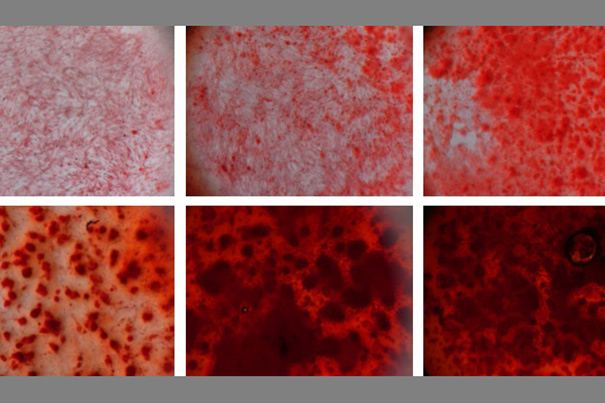
-
‘Brainbow,’ version 2.0
Led by Joshua Sanes and Jeff Lichtman, a group of Harvard researchers has made a host of technical improvements in the “Brainbow” imaging technique.

-
Building on Einstein
A team at Tel Aviv University in Israel and the Harvard-Smithsonian Center for Astrophysics has just discovered an exoplanet using a new method that relies on Einstein’s special theory of relativity.

-
Mourning that vexes the future
In a new paper, Professor of Psychology Richard McNally and graduate student Don Robinaugh say that while people suffering from complicated grief — a syndrome marked by intense, debilitating emotional distress and yearning for a lost loved one — had difficulty envisioning specific events in their future, those problems disappeared when they were asked to imagine an alternate future that included their lost loved one.
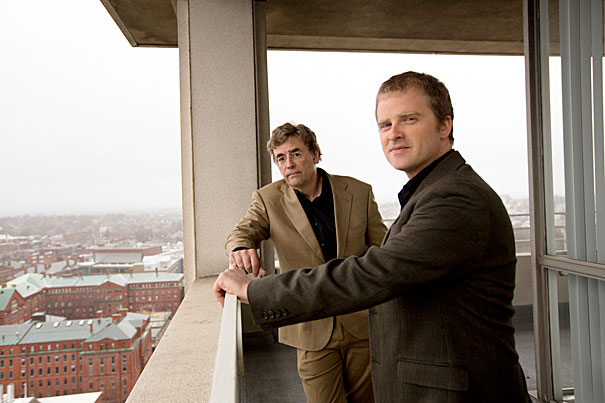
-
Making old hearts younger
Two Harvard Stem Cell Institute researchers have identified a protein in the blood of mice and humans that may prove to be the first effective treatment for the form of age-related heart failure that affects millions of Americans, a study says.
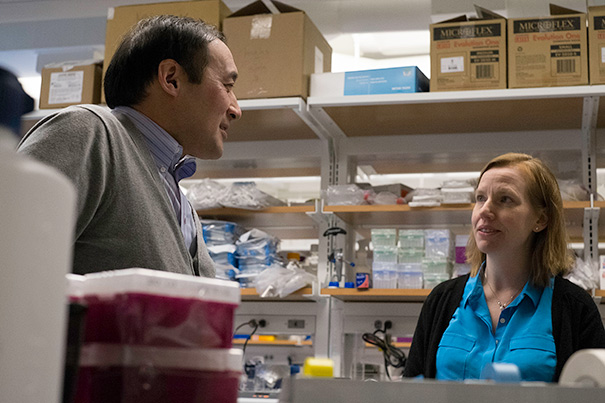
-
Lower health care costs may last
A slowdown in the growth of U.S. health care costs could mean a savings of as much as $770 billion on Medicare spending over the next decade, Harvard economists say.

-
Giants behind, challenges ahead
Fifty years after its founding, the Harvard School of Public Health’s Department of Global Health and Population took time for reflection and a look ahead on April 25 during an all-day symposium at the School.
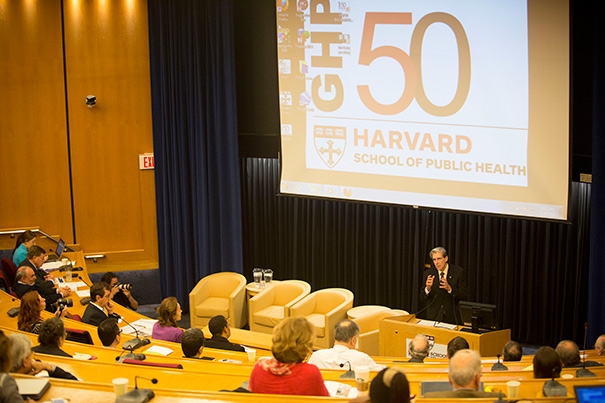
-
Melding the Web and the tactile
An organismic and evolutionary biology course this semester has formed a virtual classroom with other universities to examine the holdings of museum collections and the vast amount of data they contain and integrate them into the classroom.
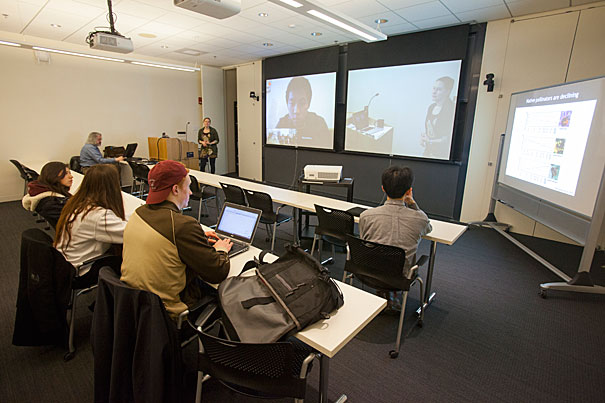
-
Potential diabetes breakthrough
Researchers at the Harvard Stem Cell Institute have discovered a hormone that holds promise for a dramatically more effective treatment of type 2 diabetes, a metabolic illness afflicting an estimated 26 million Americans.
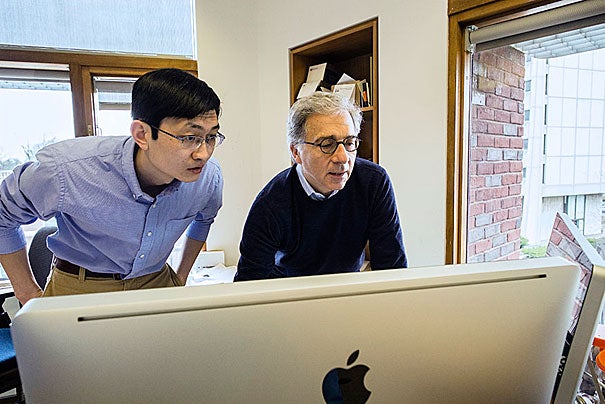
-
The cost of doing nothing
The Forum at Harvard School of Public Health explored the high cost of inaction on children’s health on Tuesday, from long-term disabilities caused by failing to provide AIDS medications to major opportunities lost because of poor health, education, and economic opportunity.

-
The motivation to move
Using an unusual decision-making study, Harvard researchers exploring the question of motivation found that rats will perform a task faster or slower depending on the size of the benefit they receive, suggesting they maintain a long-term estimate of whether it’s worthwhile for them to invest the energy.
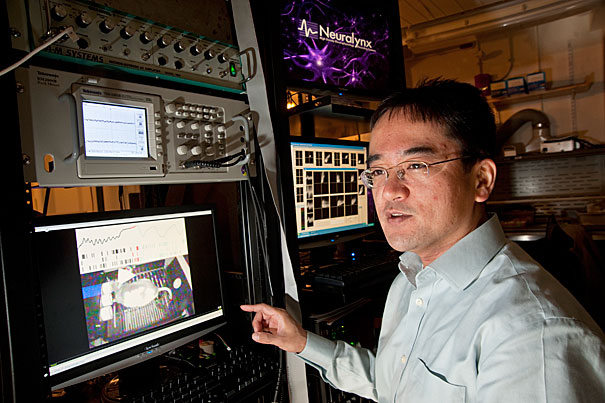
-
Big boost in drug discovery
Using a new, stem cell-based, drug-screening technology that could reinvent and greatly reduce the cost of developing pharmaceuticals, researchers at the Harvard Stem Cell Institute have found a compound that is more effective in protecting the neurons killed in amyotrophic lateral sclerosis than are two drugs that failed in human clinical trials.
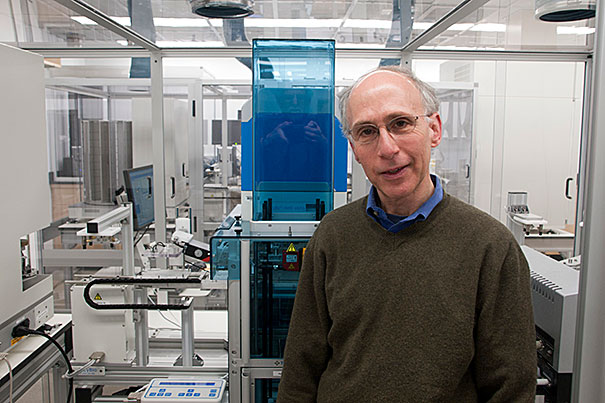
-
Coelacanth genome surfaces
An international team of researchers has decoded the genome of a creature whose evolutionary history is both enigmatic and illuminating: the African coelacanth

-
Widespread trauma
Members of the Harvard community responded to the Boston Marathon attacks and offered thoughts about both the physical and mental injuries they caused.

-
Not as evolved as we think
Lest you think you’re at the top of the evolutionary heap, looking down your highly evolved nose at the earth’s lesser creatures, Marlene Zuk has a message for you: When it comes to evolution, there is no high or low, no better or worse.
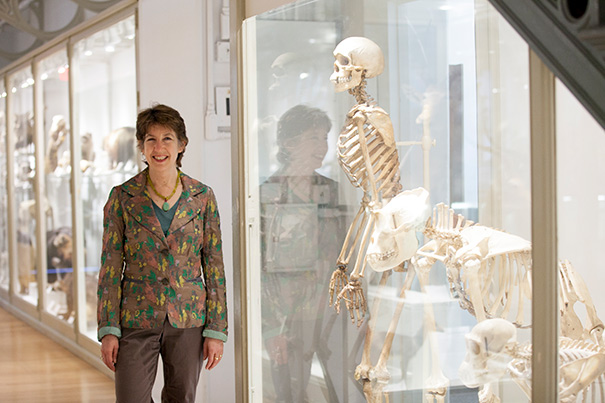
-
Making lung cancer pricey
Health and Human Services Secretary Kathleen Sebelius talked tobacco taxes and health care reform Monday during an appearance at the Forum at Harvard School of Public Health.

-
Hallmarks of healthy eating
The Mediterranean Diet has been lauded as a healthy eater’s dream, but it’s still a mystery to many Americans. Greek cooking guru Diane Kochilas and cardiac health expert Frank Sacks — who have worked to enhance the diet’s presence in Harvard’s dining hall menus — visited groups across Harvard last week to share insights and recipes.
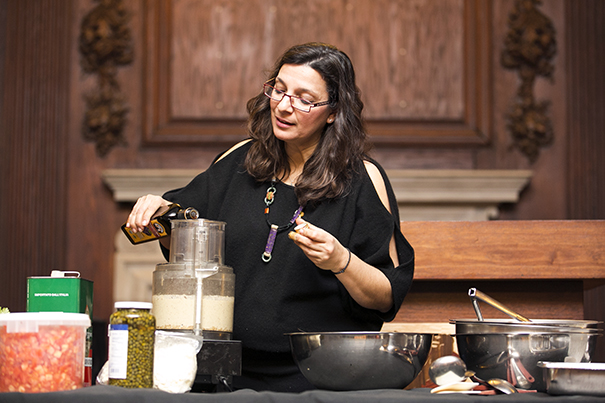
-
Eating fish gives older adults an edge
Older adults who have high blood levels of omega-3 fatty acids — found almost exclusively in fatty seafood — may be able to lower their overall mortality risk by as much as 27 percent and their mortality risk from heart disease by about 35 percent, according to a new study.

-
Progress, puzzles in halting malaria
Among the many challenges facing scientists and public health officials seeking to erase malaria from the globe are the reservoirs of parasites hidden in asymptomatic carriers or dormant in patients’ livers, said analysts at the Harvard School of Public Health.
